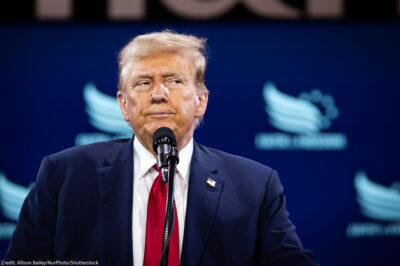Supreme Court Affirms ACLU Position that Vermont Campaign Finance Measure Would Limit Free Speech
FOR IMMEDIATE RELEASE
CONTACT: media@aclu.org
WASHINGTON - The American Civil Liberties Union today welcomed the Supreme Court's decision to heed more than 30 years of precedent and reject a Vermont measure that would have allowed the state to impose expenditure limits on political campaigns.
"The Supreme Court upheld what we believe to be fundamental," said ACLU senior staff attorney Mark Lopez. "It is not the place of government to dictate how much candidates may speak and how much voters are entitled to hear."
By a 6-3 vote, the Court ruled in Randall v. Sorrell, 04-1528, that Vermont's Act 64 violates the First Amendment, as well as the Court's own precedent against campaign spending limits. The Act imposed severe limits on the amount of money that candidates could spend to promote their own elections, coupled with the lowest statewide contribution limits in the country.
"Today's decision is good news for Vermont voters and good news for the First Amendment," said Mitchell Pearl, a cooperating attorney for the ACLU of Vermont. It will help to ensure that Vermont voters receive the information they need to evaluate the candidates who are running for office."
Vermont ranked 49th in spending in gubernatorial elections across the country. Under Act 64, spending in a gubernatorial race would have been limited to $300,000 per candidate and to $2,000 for a State House seat and individuals may only contribute between $200 and $400 to candidates in a two-year election cycle, depending on the office being sought.
"Contribution limits cannot be set so low that they prevent candidates from getting their message to the voters," said ACLU Legal Director Steven R. Shapiro. "By crossing that line, Vermont's law had less to do with preventing corruption than suppressing speech."
Thirty years ago, in the landmark case of Buckley v. Valeo, the Justices found that a candidate, "no less than any other person, has a First Amendment right to engage in the discussion of public issues and vigorously and tirelessly advocate his own election and the election of other candidates."
"Indeed," the Court noted in Buckley, "it is of particular importance that candidates have the unfettered opportunity to make their views known so that the electorate may intelligently evaluate the candidates' personal qualities and their positions on vital public issues before choosing among them on Election Day."
Attorneys for the ACLU were Peter F. Langrock and Pearl of Langrock, Sperry and Wool, LLP in Middlebury, Vermont on behalf of the ACLU of Vermont, and Shapiro, Lopez and Joel Gora of the national ACLU.
The ACLU's briefs in the case are online at:
www.aclu.org/scotus/2005/22826res20051213041528/22826res20051213.html
The Supreme Court decision in Buckley v. Valeo is offsite at:
www.law.cornell.edu/supct/html/04-1528.ZS.html
Stay Informed
Sign up to be the first to hear about how to take action.



